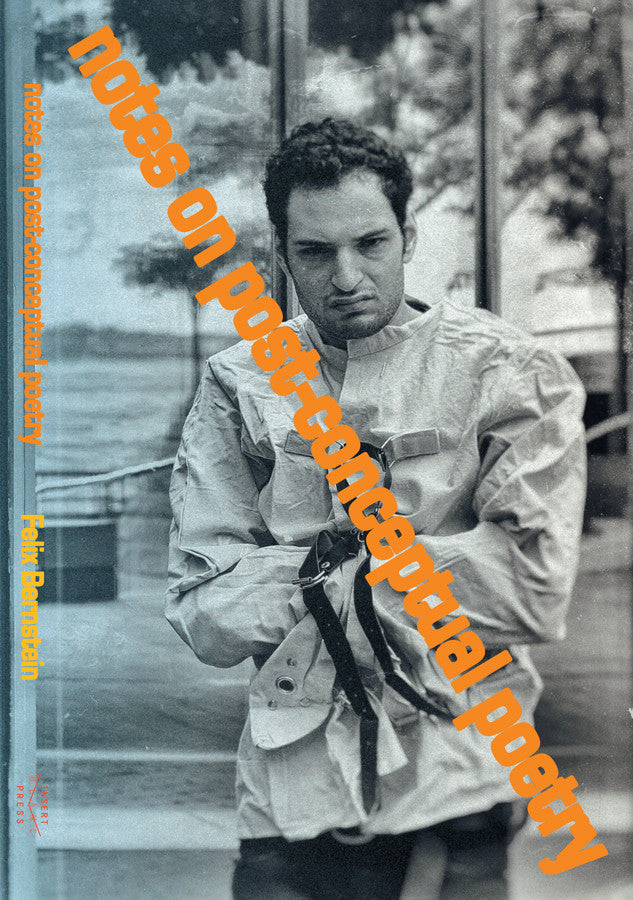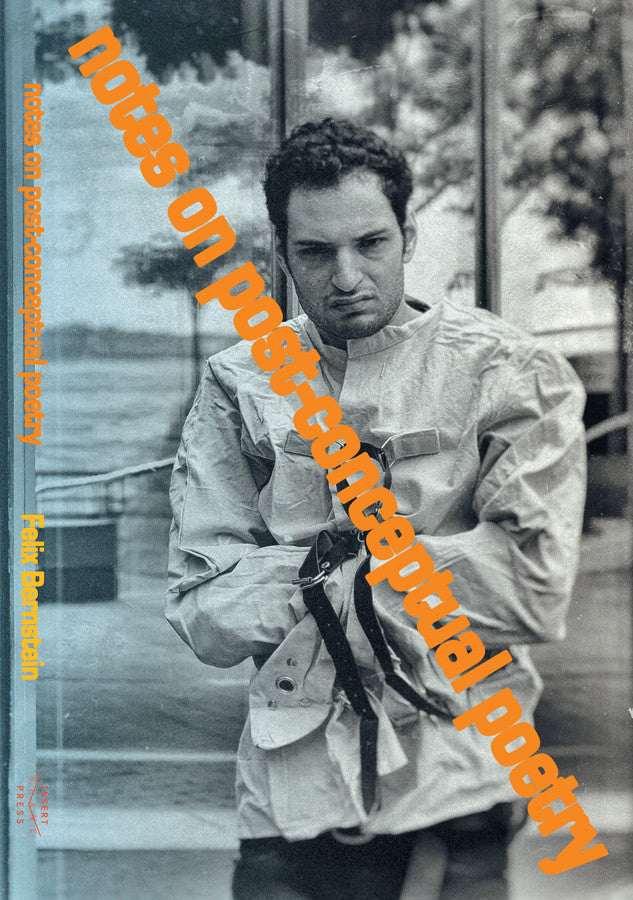"It seems unfair that Felix Bernstein should both be born into the position of heir to a famous poetry surname and be something of a genius—should such a slim boy be burdened with both? It’s enough to make one flap one’s humid veil like a frog-duenna. Yet this book is one of sheer pace and fitful pleasures, post-conceptualism’s ‘death of the work’ a reinvention of zero, as intrepid Felix nimbly parries with the spectre of Kenny Goldsmith, with various twentieth-century proper nouns, with family/literary history, and, always, with himself, a tail-chasing enterprise which traces another zero which is also an infinitesimal stage." —Joyelle McSweeney
"Notes on Post-conceptual Poetry is a list of ninety-three (93) notes, plus intro and endnotes, in which Bernstein attempts the most explicit and energetic deconstruction of prevailing avant-garde social minutiae I’ve yet encountered. In fact, I’m not sure I’ve ever read a text more intelligibly self-aware. Drawing on thinkers from Deleuze to Lacan to Love to Ngai to Badiou to Barthes to Perloff, and combining a Zizekian X-ray vision with the biting 'you can’t scare me' of youth, Notes constitutes Bernstein’s irruption into / refusal of the institutional avant-garde." —Monroe Lawrence, The Capilano Review
"Notes on Post-Conceptual Poetry counter-canonically induces its subjects by way of negative generational reconnaissance and horrifically attritional complicity. It’s tough: sheaving a set of contemporaneous cultural productions, this work of maddened criticism plays privilege up the transplatformal compound it flexes to obscure a punctum. Insert Blanc Press didn’t get these Notes first, after all—Facebook and The Volta did, as may others still. An insistent skepticism resonates intra-argumentatively, doubtlessly and hopelessly cauterized by the conceptual lineage it serves to chip away at, leakage inevitable—and in 'longing (for an end to work),' against and by the predecessors that shaped it. This version of Notes on Post-Conceptual Poetry also did not receive the assistance of an NEA Art Works Grant; nevertheless, it successfully arranges its excesses along an advanced political-philosophical horizon while exhaustively antagonizing the assessments those arrangements produce. Frantic, tactical, and resistant to endogenic rumor, it stages a few of the troubling and provocational concerns that presently riddle Bernstein’s network of writers and artists, young and old alike—their nascence approaching a discontinuity of precedential adjudications to trend and fault." —J. Gordon Faylor, Gauss PDF
"This book pretty much gets the now. Like with a slam dunk. And it knows it is slam dunking too. But even tho he's that total know-it-all boy in high school you gotta love him cuz he's also totally twisty and dark too. As in somber. Like a jewish intellectual Edward from twilight. I think we all dig boys with good breeding who are a little smart and crazy and blood thirsty. So why not try him out? It'll be a fun ride, if nothing else." —Hilary Duff






